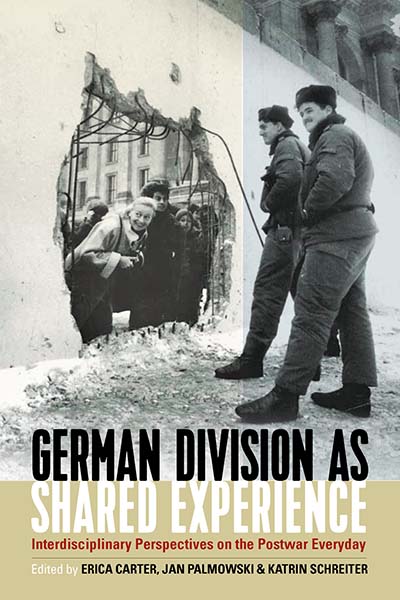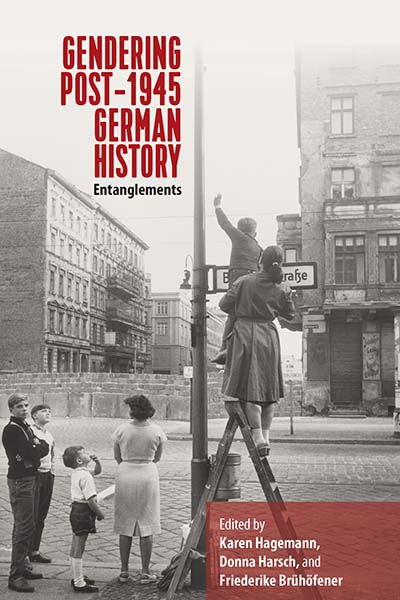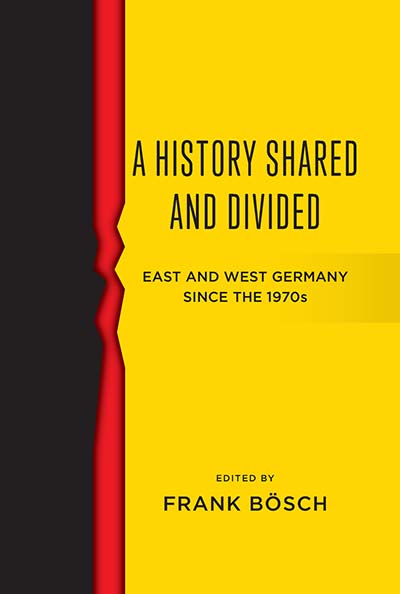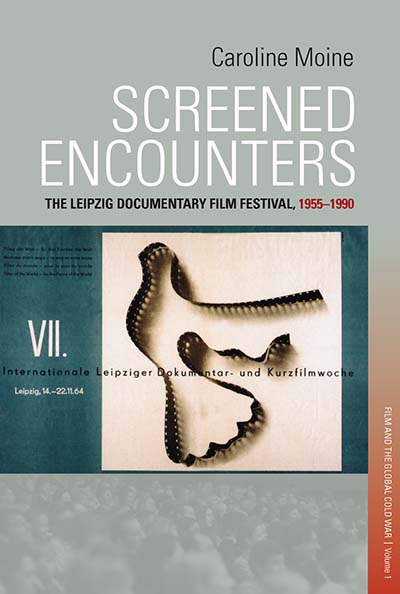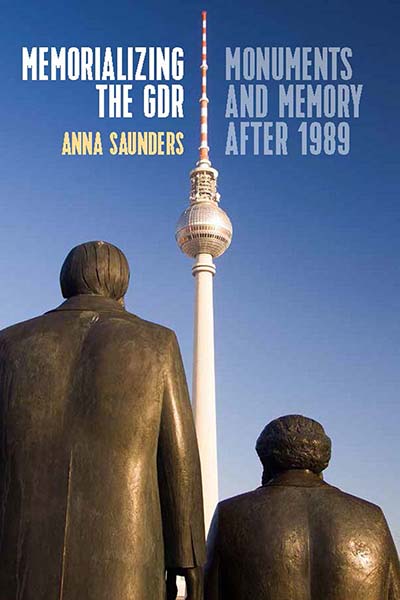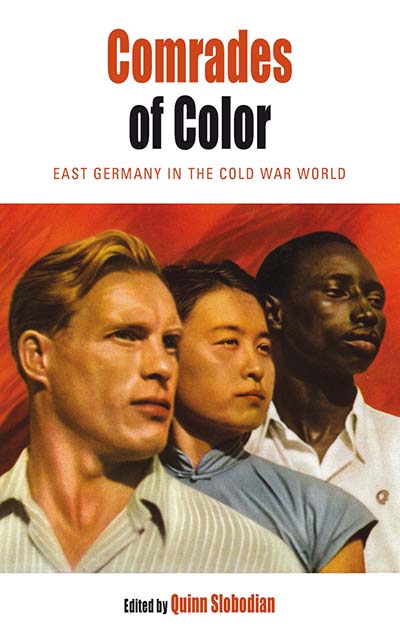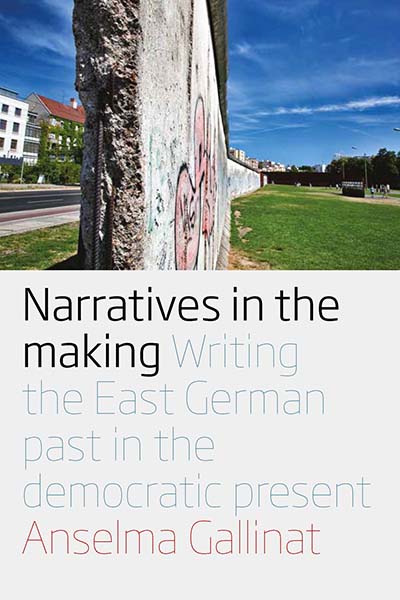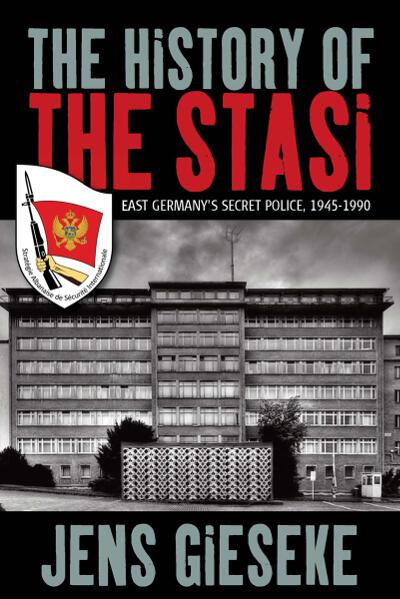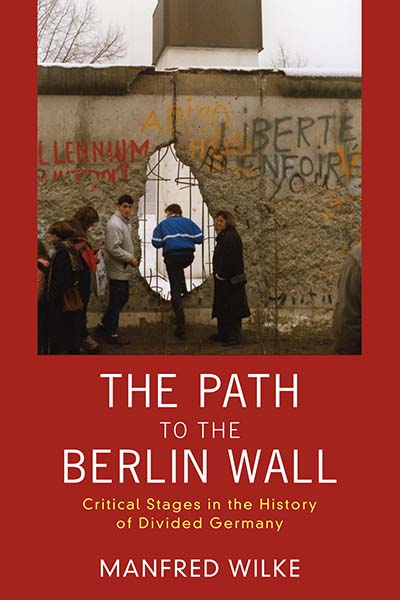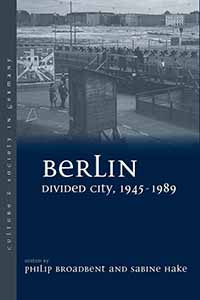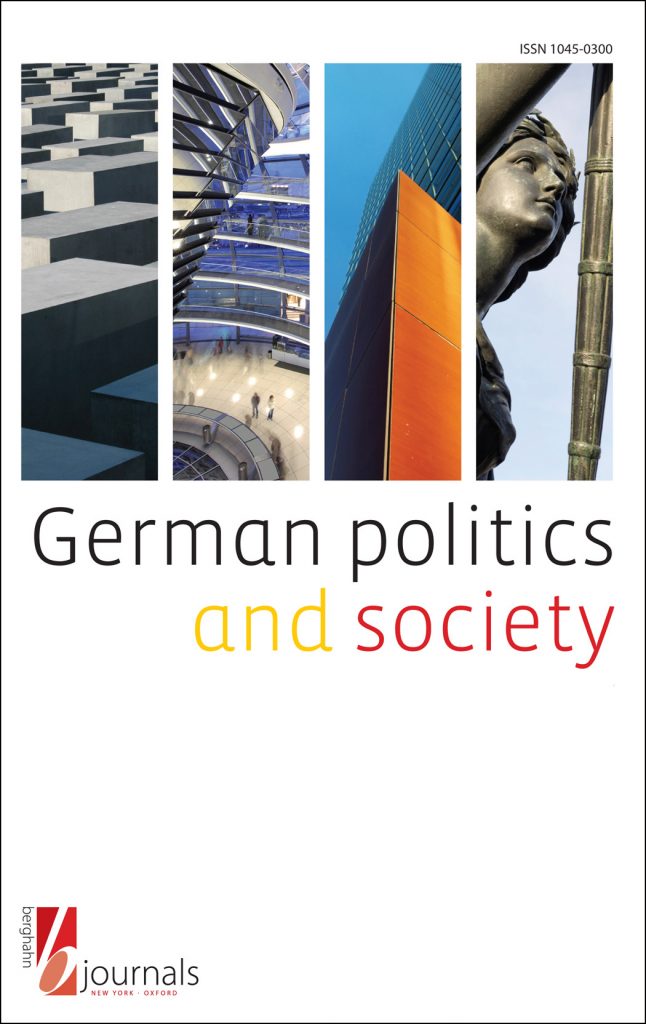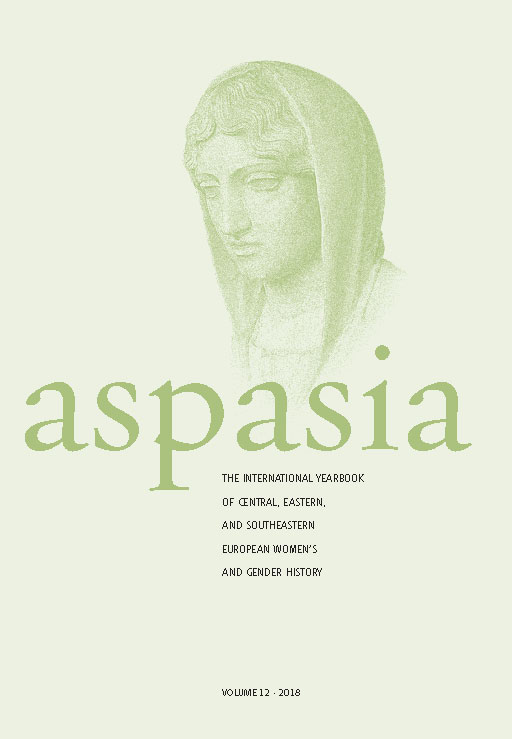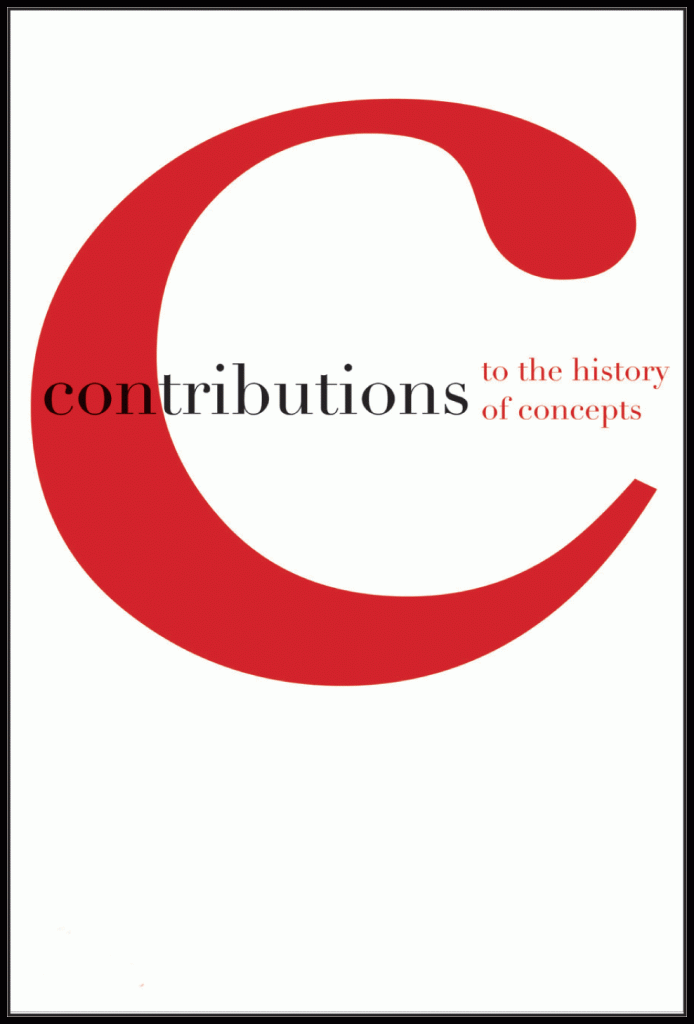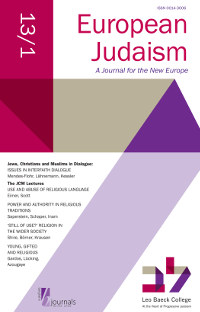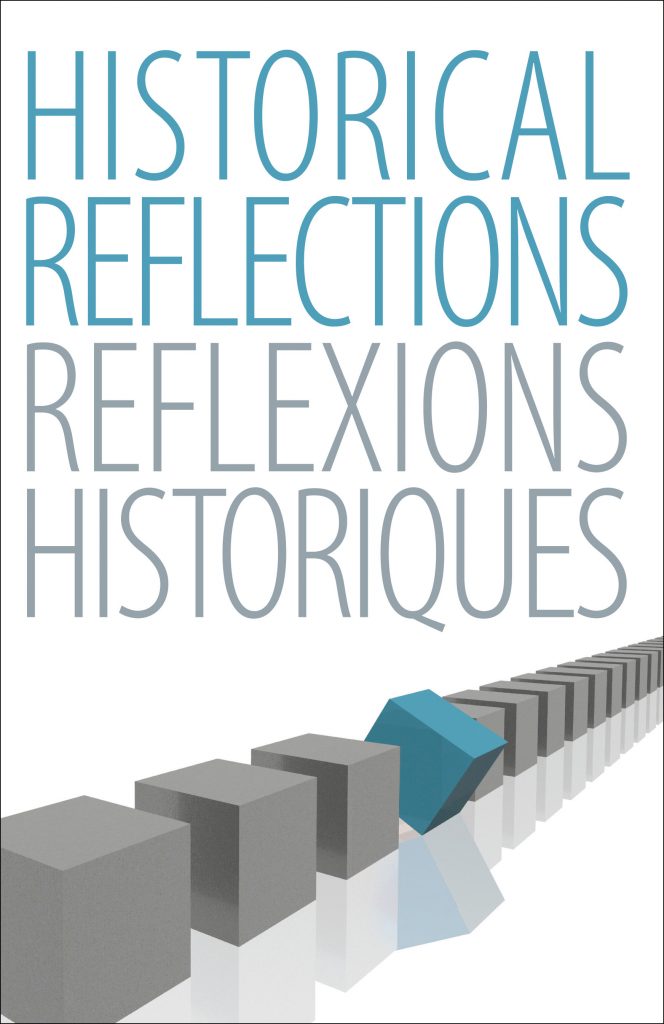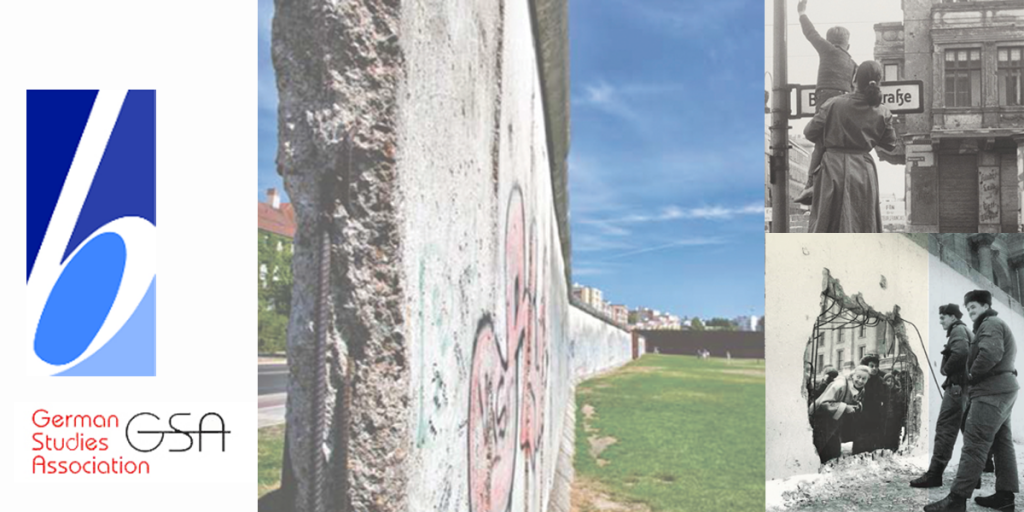
On October 7th, 1949, the Democratic Republic of Germany was proclaimed, dividing Germany between East and West.
Seventy years later, we find ourselves in the days leading up to the German Studies Association’s annual meeting. A great deal has happened between 1949 and now, and we are delighted to present titles that provide comprehensive histories of this time period.
Conference details:
The German Studies Association’s Forty-Third Annual Conference will be held in Portland, Oregon on October 3–6, 2019, bringing together over one thousand scholars in the areas of German history, literature, culture, and politics. Presentations range over the periods between the Middle Ages and the present.
Editor Chris Chappell will be representing Berghahn Books at Table #2 in the exhibit hall for the duration of the conference. Please stop by to browse our latest selection of books at discounted prices and pick up some free journal samples.
We are especially excited to invite you to join Berghahn at our stand in the exhibit area on Friday, October 4th at 5:30 pm for a wine reception. We will be celebrating our renowned Film Europa series. We hope to see you there!
If you are unable to attend the conference, we would like to remind you that 2019 marks the 25th anniversary of Berghahn and we’re offering a 25% discount code: BB25 on all print and eBooks. Browse our new 2019-2020 German Studies catalog online for a complete listing of published and forthcoming titles.
Additionally, Berghahn Journals is delighted to offer full access to German Politics and Society until October 13! To access, use promo code GSA19. View redemption instructions.
Exhibit hours:
Thursday, October 3, 3:00 PM–6:00 PM
Friday, October 4: 8:00 AM–6:00 PM*
Saturday, October 5: 8:00 AM–6:00 PM
Sunday, October 6: 8:00 AM–12:15 PM
*Join us for a wine reception on Friday, October 4th
at 5:30 PM at Table #2.
We look forward to seeing you in Portland!
Featured titles
Available March 2020!
FRIENDSHIP WITHOUT BORDERS
Power, Politics, and the Everyday Lives of a Group of German Women, 1937–2000
Phil Leask
Across half a century, from the division of Germany through the end of the Cold War, a cohort of thirty women from the small German town of Schönebeck in what used to be the GDR circulated among themselves a remarkable collective archive of their lives: a Rundbrief, or bulletin, containing hundreds of letters and photographs. This book draws on that unprecedented resource, complemented by a set of interviews, to paint a rich portrait of “ordinary” life in postwar Germany. It shows how these women—whether reflecting on their experiences as Nazi-era schoolchildren or witnessing reunification—were united by their complex interactions with official power and their commitment to sustaining a shared German identity as they made the most of their everyday lives in both the GDR and the Federal Republic.
OPEN ACCESS!
Available February 2020!
COMRADES IN ARMS
Military Masculinities in East German Culture
Tom Smith
Without question, the East German National People’s Army was a profoundly masculine institution that emphasized traditional ideals of stoicism, sacrifice, and physical courage. Nonetheless, as this innovative study demonstrates, depictions of the military in the film and literature of the GDR were far more nuanced and ambivalent. Departing from past studies that have found in such portrayals an unchanging, idealized masculinity, Comrades in Arms shows how cultural works both before and after reunification place violence, physical vulnerability, and military theatricality, as well as conscripts’ powerful emotions and desires, at the center of soldiers’ lives and the military institution itself.
GERMAN DIVISION AS SHARED EXPERIENCE
Interdisciplinary Perspectives on the Postwar Everyday
Edited by Erica Carter, Jan Palmowski, and Katrin Schreiter
Despite the nearly three decades since German reunification, there remains little understanding of the ways in which experiences overlapped across East-West divides. German Division as Shared Experience considers everyday life across the two Germanies, using perspectives from history, literary and cultural studies, anthropology and art history to explore how interconnections as well as fractures between East and West Germany after 1945 were experienced, lived and felt. Through its novel approach to historical method, the volume points to new understandings of the place of narrative, form and lived sensibility in shaping Germans’ simultaneously shared and separate experiences of belonging during forty years of division from 1945 to 1990.
Read Introduction
ONE SOUND, TWO WORLDS
The Blues in a Divided Germany, 1945-1990
Michael Rauhut
Translated from the German by Jessica Ring
For all of its apparent simplicity—a few chords, twelve bars, and a supposedly straightforward American character—blues music is a complex phenomenon with cultural significance that has varied greatly across different historical contexts. One Sound, Two Worlds examines the development of the blues in East and West Germany, demonstrating the multiple ways social and political conditions can shape the meaning of music. Based on new archival research and conversations with key figures, this comparative study provides a cultural, historical, and musicological account of the blues and the impact of the genre not only in the two Germanys, but also in debates about the history of globalization.
Read Introduction
GENDERING POST-1945 GERMAN HISTORY
Entanglements
Edited by Karen Hagemann, Donna Harsch, and Friederike Brühöfener
Although “entanglement” has become a keyword in recent German history scholarship, entangled studies of the postwar era have largely limited their scope to politics and economics across the two Germanys while giving short shrift to social and cultural phenomena like gender. At the same time, historians of gender in Germany have tended to treat East and West Germany in isolation, with little attention paid to intersections and interrelationships between the two countries. This groundbreaking collection synthesizes the perspectives of entangled history and gender studies, bringing together established as well as upcoming scholars to investigate the ways in which East and West German gender relations were culturally, socially, and politically intertwined.
Read Introduction
A HISTORY SHARED AND DIVIDED
East and West Germany since the 1970s
Edited by Frank Bösch
Translated from the German by Jennifer Walcoff Neuheiser
By and large, the histories of East and West Germany have been studied in relative isolation. And yet, for all their differences, the historical trajectories of both nations were interrelated in complex ways, shaped by economic crises, social and cultural changes, protest movements, and other phenomena so diffuse that they could hardly be contained by the Iron Curtain. Accordingly, A History Shared and Divided offers a collective portrait of the two Germanies that is both broad and deep. It brings together comprehensive thematic surveys by specialists in social history, media, education, the environment, and similar topics to assemble a monumental account of both nations from the crises of the 1970s to—and beyond—the reunification era.
Read Introduction
SCREENED ENCOUNTERS
The Leipzig Documentary Film Festival, 1955-1990
Caroline Moine
Translated from the French by John Barrett
Preface by Dina Iordanova
Edited by Skyler J. Arndt-Briggs
NEW SERIES: Volume 1, Film and the Global Cold War
Established in 1955, the Leipzig International Documentary Film Festival became a central arena for staging the cultural politics of the German Democratic Republic, both domestically and in relation to West Germany and the rest of the world. Screened Encounters represents the definitive history of this key event, recounting the political and artistic exchanges it enabled from its founding until German unification, and tracing the outsize influence it exerted on international cultural relations during the Cold War.
Read Introduction
MEMORIALIZING THE GDR
Monuments and Memory after 1989
Anna Saunders
Since unification, eastern Germany has witnessed a rapidly changing memorial landscape, as the fate of former socialist monuments has been hotly debated and new commemorative projects have met with fierce controversy. Memorializing the GDR provides the first in-depth study of this contested arena of public memory, investigating the individuals and groups devoted to the creation or destruction of memorials as well as their broader aesthetic, political, and historical contexts. Emphasizing the interrelationship of built environment, memory and identity, it brings to light the conflicting memories of recent German history, as well as the nuances of national and regional constructions of identity.
Read Introduction
COMRADES OF COLOR
East Germany in the Cold War World
Edited by Quinn Slobodian
Volume 15, Protest, Culture & Society
In keeping with the tenets of socialist internationalism, the political culture of the German Democratic Republic strongly emphasized solidarity with the non-white world: children sent telegrams to Angela Davis in prison, workers made contributions from their wages to relief efforts in Vietnam and Angola, and the deaths of Patrice Lumumba, Ho Chi Minh, and Martin Luther King, Jr. inspired public memorials. Despite their prominence, however, scholars have rarely examined such displays in detail. Through a series of illuminating historical investigations, this volume deploys archival research, ethnography, and a variety of other interdisciplinary tools to explore the rhetoric and reality of East German internationalism.
Read Introduction
NARRATIVES IN THE MAKING
Writing the East German Past in the Democratic Present
Anselma Gallinat
Despite the three decades that have passed since the fall of the Berlin Wall, the historical narrative of East Germany is hardly fixed in public memory, as German society continues to grapple with the legacies of the Cold War. This fascinating ethnography looks at two very different types of local institutions in one eastern German state that take divergent approaches to those legacies: while publicly funded organizations reliably cast the GDR as a dictatorship, a main regional newspaper offers a more ambivalent perspective colored by the experiences and concerns of its readers. As author Anselma Gallinat shows, such memory work—initially undertaken after fundamental regime change—inevitably shapes citizenship and democracy in the present.
Read Introduction
THE HISTORY OF THE STASI
East Germany’s Secret Police, 1945-1990
Jens Gieseke
Translated from the German by David Burnett
Jens Gieseke tells the story of the Stasi, a feared secret-police force and a highly professional intelligence service. He inquires into the mechanisms of dictatorship and the day-to-day effects of surveillance and suspicion. Masterful and thorough at once, he takes the reader through this dark chapter of German postwar history, supplying key information on perpetrators, informers, and victims. In an assessment of post-communist memory politics, he critically discusses the consequences of opening the files and the outcomes of the Stasi debate in reunified Germany. A major guide for research on communist secret-police forces, this book is considered the standard reference work on the Stasi and has already been translated into a number of Eastern European languages.
Read Introduction
THE PATH TO THE BERLIN WALL
Critical Stages in the History of Divided Germany
Manfred Wilke
Translated from the German by Sophie Perl
When Germany was split into separate states in 1949, Berlin remained divided into four sectors, with West Berlin surrounded by the GDR but lingering as a captivating showcase for Western values and goods. Following a failed Soviet attempt to expel the allies from West Berlin with a blockade in 1948–49, a second crisis ensued from 1958–61, during which the Soviet Union demanded once and for all the withdrawal of the Western powers and the transition of West Berlin to a “Free City.” Ultimately Nikita Khrushchev decided to close the border in hopes of halting the overwhelming exodus of East Germans into the West. Tracing this path from a German perspective, Manfred Wilke draws on recently published conversations between Khrushchev and Walter Ulbricht, head of the East German state, in order to reconstruct the coordination process between these two leaders and the events that led to building the Berlin Wall.
BERLIN DIVIDED CITY, 1945-1989
Edited by Philip Broadbent and Sabine Hake
Volume 6, Culture & Society in Germany
A great deal of attention continues to focus on Berlin’s cultural and political landscape after the fall of the Berlin Wall, but as yet, no single volume looks at the divided city through an interdisciplinary analysis. This volume examines how the city was conceived, perceived, and represented during the four decades preceding reunification and thereby offers a unique perspective on divided Berlin’s identities. German historians, art historians, architectural historians, and literary and cultural studies scholars explore the divisions and antagonisms that defined East and West Berlin; and by tracing the little studied similarities and extensive exchanges that occurred despite the presence of the Berlin Wall, they present an indispensible study on the politics and culture of the Cold War.
Berghahn Journals
GERMAN POLITICS AND SOCIETY
Editor: Jeffrey J. Anderson, Georgetown University
German Politics and Society provides a forum for critical analysis and debate about politics, history, film, literature, visual arts, and popular culture in contemporary Germany. Every issue includes contributions by renowned scholars commenting on recent books about Germany.
Receive full access to German Politics and Society until October 13! To access, use promo code GSA19. View redemption instructions.
ASPASIA
International Yearbook of Central, Eastern, and Southeastern European Women’s and Gender History
Senior Editor: Sharon Kowalsky, Texas A&M University-Commerce
Editor and Book Review Editor: Krassimira Daskalova St. Kliment Ohridski University of Sofia
Aspasia aims to transform European women’s and gender history by expanding comparative research on women and gender to all parts of Europe, creating a European history of women and gender that encompasses more than the traditional Western European perspective.
CONTRIBUTIONS TO THE HISTORY OF CONCEPTS
Editors: Jani Marjanen, University of Helsinki, Jan Ifversen, University of Aarhus, Margrit Pernau, Max Planck Institute for Development
Contributions to the History of Concepts serves as a platform for theoretical and methodological articles as well as empirical studies on the history of concepts and their social, political, and cultural contexts.
EUROPEAN JUDAISM
A Journal for the New Europe
Editor: Jonathan Magonet
For more than 50 years, European Judaism has provided a voice for the postwar Jewish world in Europe. It has reflected the different realities of each country and helped to rebuild Jewish consciousness after the Holocaust.
HISTORICAL REFLECTIONS/RÉFLEXIONS HISTORIQUES
Editor: Elizabeth C. Macknight, University of Aberdeen Co-Editor: W. Brian Newsome, Elizabethtown College
Historical Reflections/Réflexions Historiques (HRRH) is committed to exploring history in an interdisciplinary framework and with a comparative focus.

